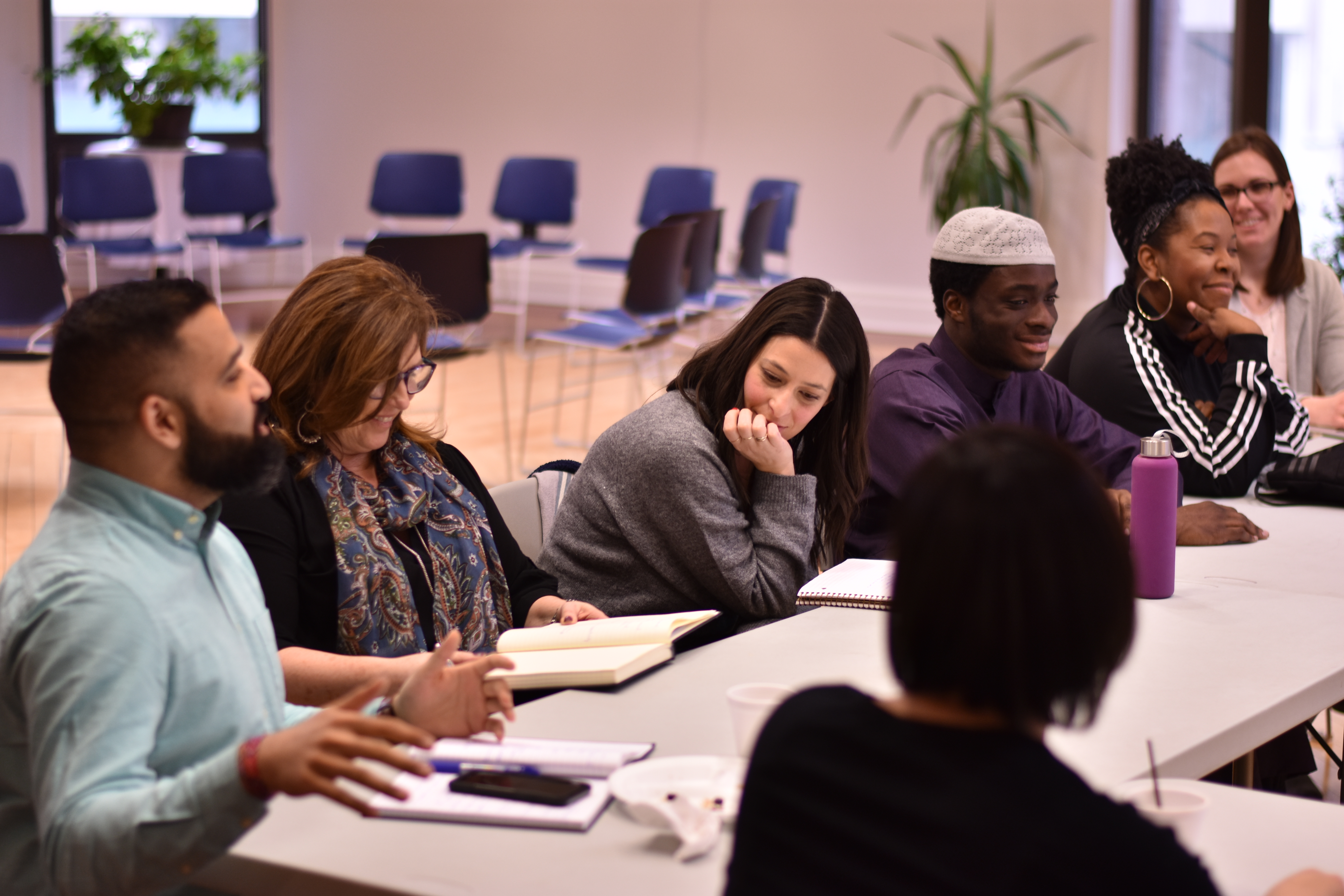In a rapidly-changing society, many young people struggle as they take their first steps into the workforce. In a city like Toronto, vulnerable youth face additional challenges with navigating interviews, structural barriers, and expectations in the workplace.

These were among the issues discussed by some 30 participants in a “Community of Practice” gathering organized by YouthRex (Youth Research and Evaluation Exchange) and the Baha’i Community of Canada’s Office of Public Affairs. The event was held at the Toronto Baha’i Centre on March 28, 2019.
It was the first in a series of discussions about the relationship between knowledge and practice in the youth-serving sector in Ontario.
“The Baha’i community has been learning about implementing youth empowerment programs for a number of years now. We are eager to be in conversation with others about the ideas that inform our work with this population, and to learn from their experience as well,” explained Ashraf Rushdy, one of the organizers and a Project Coordinator with the Office of Public Affairs.
The gathering began with opening remarks by a number of guest speakers, chaired by Cyril Cromwell, Learning and Development Manager at YouthRex. He encouraged participants to draw from their experience in diverse organizations to identify barriers to youth employment, and how these might be addressed. Cromwell suggested looking at different levels of analysis, from the role of structures, to organizations and communities, to individuals.
Letecia Rose, a participant in the gathering and a partnership coordinator with MLSE Launchpad, commented: “We sometimes just think about barriers as one pot of issues we have to deal with, but structurally youth face systemic barriers. As organizations, we have to think about our role [in addressing these barriers] not just through more programming, but [by asking] are we helping youth to land in meaningful employment, and with support to thrive there. At a micro level, we also have to consider personally: how am I helping young people to have goals and a vision for where they see themselves going?”
A theme that emerged throughout the gathering was the important role played by mentorship, accompaniment, and “sponsorship” in helping young people to navigate the challenges of pursuing an education, training, and creating a meaningful career trajectory. “Mentorship is the fundamental piece around youth gaining and maintaining employment,” added Rose.
Iren Kolterman, an employment consultant and a speaker at the gathering, commented, “This concept of accompaniment and mentorship is so important… One person cannot help someone. I stand here because so many people have helped me to get here… The role that play as frontline people is not just to work with our clients, but to work with the community to build capacity within that community to provide support for youth so they can advance.”
This narrative was reinforced by the personal experience of another speaker, Chezlie Alexander, a community strategy lead in the Ontario Ministry of Children and Youth Services. He shared aspects of his own life, where he came across people who saw something in him – a seed – and watered that. His best friend’s Dad told him that he saw talents and capacities in him, and encouraged him to develop them.
“I’ve been fortunate to have folks who have a sponsorship mentality to say, I know where this kid wants to go, right… and I can get him on that next rung, so I’ve been lucky that way,” Alexander said.
He commented that we often have a “deficit” perspective of youth, where we focus on what is wrong with them. But that’s “bad math,” he said. We need a different framework, and a different approach, that sees the potential in young people.
This gathering was the first in a series of meetings of a “Community of Practice” focused bringing together people working in the youth sector of Ontario to share insights from their experience serving young people. For more information, contact publicaffairs@bahai.ca
Photos courtesy of youthREX.

